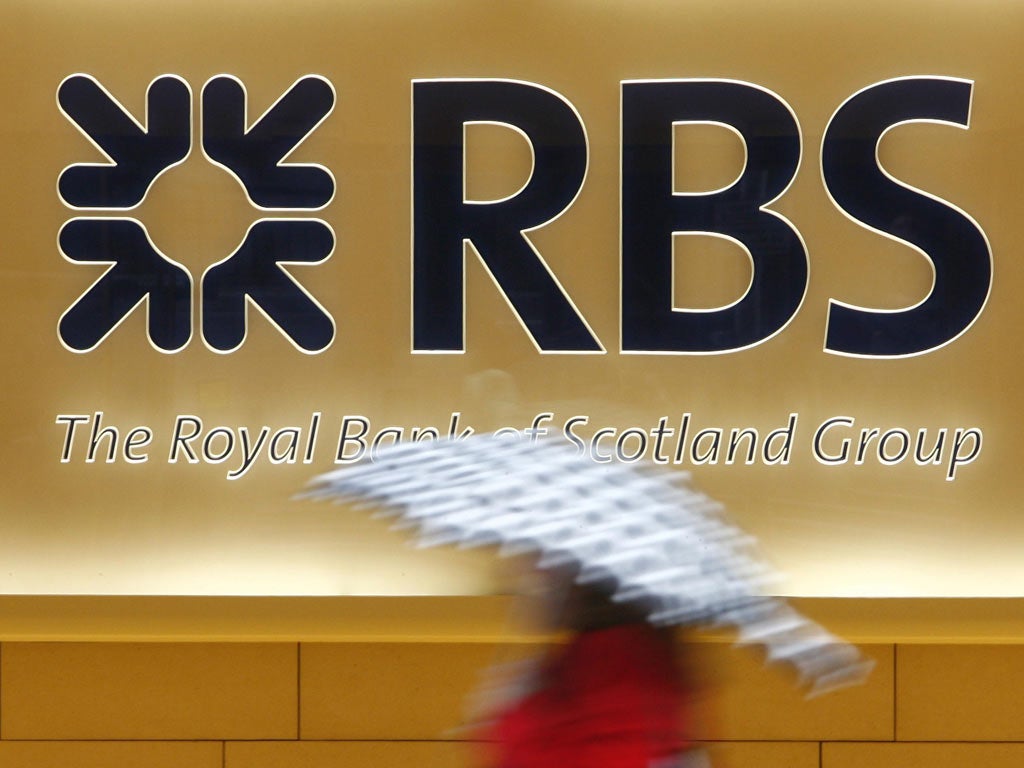Management and light-touch regulation blamed for RBS crisis

Poor management decisions and the last Labour government's light-touch regulatory regime were key factors in the near-collapse of Royal Bank of Scotland, a long-awaited report by the City watchdog said today.
The Financial Services Authority (FSA) highlighted deficiencies in the management, governance and culture at RBS and said that the deal which effectively broke the bank - the £50 billion takeover of Dutch bank ABN Amro - was carried out with inadequate due diligence.
However, it also highlighted its own short-comings in the lead-up to the collapse, saying it operated a flawed supervisory approach which failed to challenge the management of RBS.
It added: "This approach reflected widely held, but mistaken assumptions about the stability of financial systems and existed against a backdrop of political pressures for a 'light touch' regulatory regime."
The FSA identified six key factors in the failure of RBS, most significantly its weak capital position and over-reliance on risky short-term funding in wholesale markets.
In terms of the ABN Amro acquisition, the FSA said RBS proceeded without appropriate heed to the risks involved and with due diligence from the Dutch bank that in April 2007 amounted to "two lever-arch folders and a CD".
The FSA said the seventh key factor in explaining the bank's demise was the management, led by chief executive Sir Fred Goodwin.
It said: "The multiple poor decisions that RBS made suggest that there are likely to have been underlying deficiencies in RBS management, governance and culture which made it prone to make poor decisions."
Today's report includes a recommendation that banks should gain regulatory approval for significant acquisitions and asks whether bank directors should be forced to prove their innocence in the event of a future failure.
However, it confirms that the FSA does not intend to pursue any new enforcement action against any of RBS's former directors.
FSA chairman Adair Turner said: "The fact that no individual has been found legally responsible for the failure begs the question: if action cannot be taken under existing rules, should not the rules be changed for the future?"
The report notes a speech made in 2006 by Treasury secretary Ed Balls, now shadow chancellor, in which he said "nothing should be done to put at risk a light-touch, risk-based regulatory regime".
Mr Turner added today: "The report describes a historic approach to supervision, and one that has been radically reformed since 2007. The FSA is a different organisation now.
"We have more resources, better skills, a more intensive approach and far greater focus on capital, liquidity and asset quality."
RBS expanded aggressively under the eight-year leadership of Sir Fred, who was replaced by Stephen Hester after RBS needed a Government bailout that left it more than 80% taxpayer-owned. It was swelled by a series of acquisitions, including NatWest in 1999 and US bank Charter One in 2004 and by the time of its collapse its balance sheet was bigger than the entire UK GDP.
The regulator said in a 300-word report released last December that it found no evidence of fraud or dishonest activity in the lead up to the crisis, although the bank made a series of bad decisions.
Today's fuller report runs to 452 pages and was made public following pressure from the Treasury Select Committee, which said the original statement summing up the results of the FSA investigation failed to answer important questions or show that lessons had been learned.
Since it became clear that the report would be made public, lawyers representing top bankers have been involved in protracted negotiations over the content.
Labour Treasury spokesman Chris Leslie said: "Today's report by the FSA into the failures at RBS makes it clear that 'ultimate responsibility for poor decisions must lie with the firm' but also that the regulators didn't do enough - and we have to learn lessons from that.
"It is astonishing that deeply irresponsible decisions by these bankers could have forced a £45 billion bailout necessary to save depositors, and yet no enforcement action is brought, and nobody is punished for this.
"We need a change in the law to ensure that incompetent bankers can be held properly accountable for the harm they can cause - and if George Osborne does not amend the Financial Regulation Bill to introduce the concept of 'strict liability' for bank directors, then we will do so."
Mr Leslie also called for changes in the law to require financial regulators' approval for any major bank acquisition and to prevent City firms skewing their advice in the hope of securing big fees if a takeover goes ahead.
"Governments and regulators around the world, including here in Britain, should have been tougher on the banks before the crash," said Mr Leslie.
"We've apologised for not being tough enough, but when will David Cameron and George Osborne say sorry for calling for less regulation and complaining that Labour was too tough?"
Conservative Party deputy chairman Michael Fallon said: "Today's report exposes how Labour share the blame for the regulatory failures that led to the biggest bank bailout in history. Gordon Brown and his right-hand man, Ed Balls, were putting pressure on the City regulator to turn a blind eye to the irresponsible risks banks were taking.
"This is why the Government is right to reform both Labour's broken system of financial regulation and the banking sector so that taxpayers aren't landed with multibillion-pound bills ever again, and to create a stable and balanced financial system that works for everyone.
"You wouldn't bring back Fred Goodwin to sort out the banks, so why would you bring back Ed Balls to sort out the economy?"
PA
Subscribe to Independent Premium to bookmark this article
Want to bookmark your favourite articles and stories to read or reference later? Start your Independent Premium subscription today.

Join our commenting forum
Join thought-provoking conversations, follow other Independent readers and see their replies